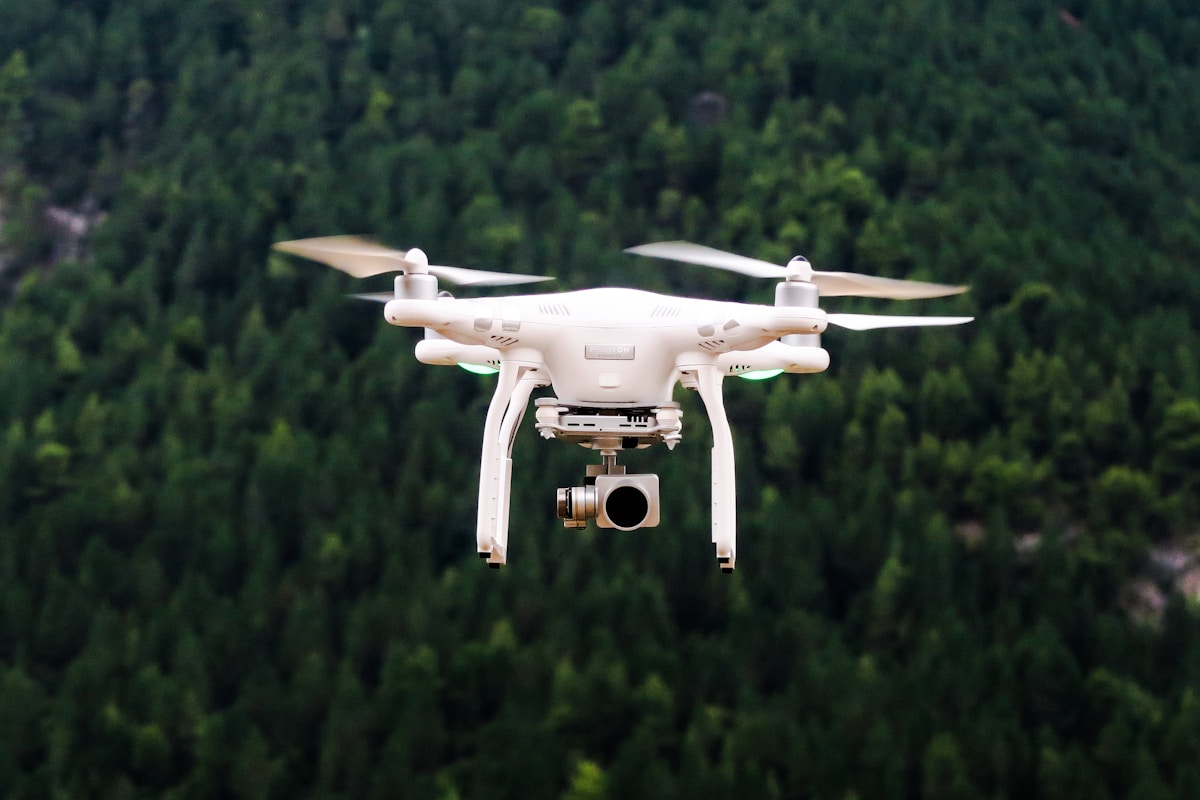Study techniques for drone certification has gotten complicated with all the conflicting advice, outdated information, and overwhelming details flying around. As someone who’s been deeply involved in the Part 107 and drone operation world for years, I learned everything there is to know about this subject. Today, I will share it all with you.
That’s what makes this topic endearing to us certificated pilots – it gives us practical knowledge we can actually use in the field.
Probably should have led with this section, honestly, but let me break down what you really need to know:
Regulations form the backbone of the exam content. Study the Federal Aviation Administration (FAA) guidelines thoroughly. Key topics to focus on include operating rules, flight restrictions, and emergency procedures. The FAA’s own study guide is an excellent resource for this.
Airspace Classification and Restrictions
Airspace classifications are critical to drone operations. Learn about the different classes of airspace (Class A, B, C, D, E, and G) and the specific rules associated with each. Know the boundaries and where drones can or cannot be flown. Understanding sectional charts and how to read them is also essential.
Weather Patterns and Their Impacts
Weather can significantly affect drone operations. Study the basics of weather patterns, including how to read METAR and TAF reports, types of clouds, and general weather fronts. Recognize how different weather conditions, like wind and precipitation, can impact drone stability and safety.
Drone Loading and Performance

Drone loading, which includes weight and balance, affects performance. Learn how to calculate the center of gravity and its implications for flight. Understand performance factors such as power settings, flight time, and the effects of load on maneuverability and control.
Operational Knowledge
Studying operational aspects is critical. These include pre-flight inspections, battery management, and emergency procedures. It’s crucial to know the safety protocols for handling drones, including what to do in the event of a loss of control or a flyaway situation.
Utilize Practice Tests
Consistent use of practice tests can greatly enhance your preparation. They help you become familiar with the format and style of questions. They also identify areas where you need further study. Many online resources offer mock exams that simulate the actual test environment.
FAA Training Courses and Guides
The FAA offers training courses and comprehensive study guides explicitly curated for the drone operator exam. These materials cover all necessary topics and are structured to facilitate easy learning. They are trustworthy resources for your study plan.
Join Study Groups and Online Communities
Joining study groups or online communities can provide additional support and resources. These platforms allow you to discuss complex topics, share learning materials, and gain insights from others who are also preparing for the exam.
Time Management and Study Schedule
Develop a study schedule that allows you to cover all topics effectively. Allocate more time to areas where you feel less confident. Consistent, short study sessions tend to be more effective than cramming. Ensure you balance study with breaks to maintain productivity and avoid burnout.
Hands-On Practice
Hands-on experience is invaluable. Practice flying your drone in different conditions and environments. This practical exposure helps reinforce theoretical knowledge and improves operational skills.
Understanding Key Acronyms
Familiarize yourself with aviation acronyms commonly used in drone operations. For example, VLOS (Visual Line Of Sight), NOTAM (Notice to Airmen), and ATC (Air Traffic Control). Knowing these terms can help you understand questions better during the exam.
Using a Study Guide
A structured study guide can be beneficial. Many commercial and free guides are available online. Choose one that is up-to-date with the latest FAA regulations and guidelines. These guides often break down the material into manageable chunks, making it easier to understand.
Flight Logs and Documentation
Understand the importance of maintaining flight logs and documentation for your drone operations. This includes recording flight times, maintenance records, and any incidences. Good record-keeping practices are often highlighted in the exam.
Review Sectional Charts
Sectional charts are a vital tool for drone operators. Review how to read these charts effectively. Focus on understanding the symbols, airspace boundaries, and markings. Practice interpreting chart data as you might be required to do so in practical scenarios.
Emergency Procedures
Know the standard emergency procedures for drone operations. This includes what to do in case of a battery failure, signal loss, or a sudden weather change. Familiarity with these procedures can not only help you in the exam but also in real-world operating conditions.
Regular Revisions
Regular revisions are key to retaining information. Periodically review all study materials, including notes and practice questions. This continuous review helps embed the knowledge more deeply, making recall quicker during the exam.
Visual Aids and Charts
Utilize visual aids such as charts, diagrams, and infographics. These tools can make complex information easier to understand. They are particularly useful when studying weather patterns, airspace classifications, and drone mechanics.
Simulated Flights
Engage in simulated flights using drone flight simulators. These tools allow you to practice without the risk of damaging equipment. Simulations can help you experience different scenarios and improve your decision-making skills.
Seek Expert Advice
Don’t hesitate to seek advice from experienced drone operators or instructors. They can provide practical insights and tips that are not often covered in study materials. Their expertise can be invaluable in understanding difficult concepts or tricky exam questions.
Healthy Study Habits
Develop healthy study habits. Ensure you get enough sleep, eat well, and take breaks during study sessions. A healthy body contributes to a sharp mind, which is crucial for effective learning and retention.
Review FAA Advisory Circulars
FAA Advisory Circulars provide detailed information on regulations and best practices for drone operations. Review these circulars as they often contain useful and up-to-date information that can help in your exam preparation.
Learn Through Videos and Tutorials
Leverage educational videos and tutorials. Many aviation experts share valuable insights and explanations through online platforms. These videos can be a great way to reinforce learning and understand practical applications.
Maintain a Study Journal
Keeping a study journal helps track your progress and note important points. Writing down key concepts, questions, and problem areas can aid in the retention and recall of information. Review your journal regularly as part of your revision.
Focus on Weak Areas
Identify your weak areas early in your study process. Spend more time and effort on these topics. Use additional resources and practice questions to strengthen your understanding and improve performance in these areas.
Interactive Learning Apps
Consider using interactive learning apps designed for drone operators. These apps offer quizzes, flashcards, and interactive lessons. They make learning engaging and can help break the monotony of traditional study methods.
Mock Exam Scenarios
Create mock exam scenarios to simulate the test environment. Time yourself and complete the test in one sitting. This practice helps build stamina and familiarity with the pace required to complete the exam within the allotted time.
Ethical and Responsible Flying
Understanding ethical and responsible flying is crucial. Learn about privacy concerns, community guidelines, and responsible behavior around people and property. This knowledge is not only essential for the exam but for professional conduct as a drone operator.
These study tips are designed to help you effectively prepare for the drone operator exam. Each tip addresses a specific aspect of the required knowledge and testing process. By following these guidelines, you can enhance your understanding, improve your skills, and increase your chances of passing the exam successfully. Focus, practice, and use all available resources to give yourself the best possible foundation for a successful test experience.
“`


